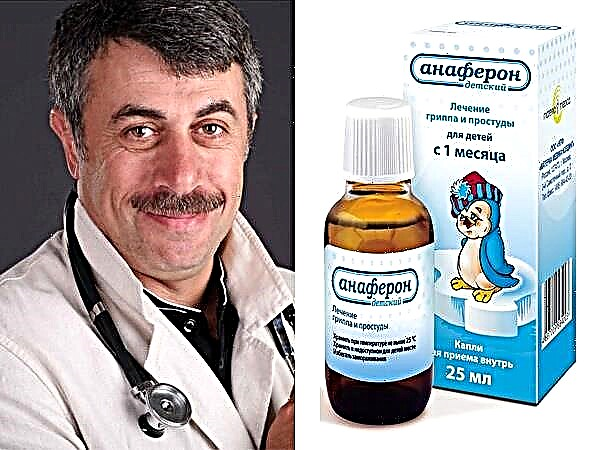The World Health Organization recommends a minimum duration of breastfeeding for 6 months. This is an optional period after which you must wean.
Doctors recommend breastfeeding the baby as much as necessary, but with the proviso that it is desirable for at least six months, when immunity and digestion are formed in the child. When to stop feeding after this period is a purely family matter, and how to stop and what is better - the female doctor will tell you.
How to stop breastfeeding by reducing the number of feeds?
This is by far the safest method, albeit the longest. A sharp separation of the child from the breast is excluded, for whom, at the age of over a year, this is no longer the main way of nutrition, but a manifestation of family interconnection at the psychological level.
For successful weaning, the number of feedings must be reduced gradually. At first, experts recommend reducing night feedings, then reducing daytime feedings, giving breast only in extreme cases (a feeling of pronounced discomfort in the chest due to overfilling or if there is no other way to calm the baby down).
At night, dad can be sent to the baby, since he has nothing to ask for. And some parents give the child for a few days to their beloved grandparents, in order to completely eliminate the reminder of the child about mother's milk.
During the period of weaning, it is worth reducing the amount of fluid consumed, BUT NOT EXCLUDING!
How to reduce the amount of breast milk with pills?
This is faster and more efficient, but not the safest.

There are medications that gynecologists prescribe to help a mother stop feeding. But the use of not all drugs is justified. I will argue honestly and impartially, examining each medicine and the validity of its use.
If the attending physician recommended tablet medicines to stop lactation, then after taking them, you should not apply them to the baby's breast, because there is a risk of components penetrating into breast milk!
Review of Effective Medications to End Breastfeeding
Cabergoline medicine
Its better known name is Dostinex.
 The only drug designed to stop lactation, which is prescribed in the instructions for its use.
The only drug designed to stop lactation, which is prescribed in the instructions for its use.
Its action is based on reducing the production of the hormone prolactin by the body, which causes the mammary glands to produce breast milk.
Analogs: Agalates, Bergolak.
Side effects: possible headache, drowsiness, drop in blood pressure, dizziness, nausea, discomfort in the mammary glands.
Contraindications: heart dysfunction, heart valve disease, risk of postpartum psychosis, lactase deficiency, individual intolerance.
Cabergoline can lower blood pressure in the first 6 hours after administration, therefore it is not recommended for women prone to arterial hypotension.
Assign in order to suppress the established lactation, half a tablet 2 times a day for two days.
It is worth resorting to this method only after consulting a specialist - a gynecologist! Only he can assess the presence of indications and contraindications for each particular woman!
Bromocriptine
Also has an overwhelming effect on lactation.
 The drug helps to stop breastfeeding due to a blocking effect on dopamine receptors, followed by a decrease in prolactin in the blood.
The drug helps to stop breastfeeding due to a blocking effect on dopamine receptors, followed by a decrease in prolactin in the blood.
The range of its effects is quite wide, including a decrease in the level of growth hormone and corticotropic hormones, which explains its possible side effects.
Analogs: "Bromergon", "Abergin", "Serocriptine".
Side effects: nausea, constipation, dryness of the oral mucosa, dizziness, headache, muscle cramps, drop in blood pressure, nasal congestion, allergic reactions, vasospasm of the limb vessels when they cool (Raynaud's syndrome).
Contraindications: hypersensitivity or intolerance to the components of the drug, tremor, Gettington's chorea, impaired vascular tone, ulcers of the gastrointestinal tract, age up to 15 years.
Only a doctor can exclude the presence of contraindications after examination and examination. Self-administration and uncontrolled medication intake is highly discouraged!
To stop the release of breast milk, the drug is prescribed for a course of two weeks, the first day at a dose of 1.25 mg 2 times a day, then 2.5 mg 2 times a day.
Blood pressure control is required while taking the drug!
Can Duphaston be taken to suppress breast milk production?
Hormonal drugs such as Dufaston and Femoston are not intended to reduce lactation. The fact is that in the official instructions for the drug in the indications there is no suppression or prevention of lactation!
 This is a progesterone drug that is used in general medical practice for other purposes - normalizing the menstrual cycle, treating dysfunctional uterine bleeding, infertility or threatened miscarriage.
This is a progesterone drug that is used in general medical practice for other purposes - normalizing the menstrual cycle, treating dysfunctional uterine bleeding, infertility or threatened miscarriage.
If the doctor prescribes them during lactation and recommends stopping breastfeeding, then most likely there are other reasons for this, for example, the normalization of the menstrual cycle.
Drug analogues: "Femoston", "Prajisan"
Side effects: impaired liver function, anemia, bleeding, allergic reactions: Quincke's edema, itching, urticaria.
According to some women, after "Duphaston", spotting spotting may occur. This should not be normal, you should contact a specialist!
Contraindications: hypersensitivity to the drug component, bleeding of unclear etiology, neoplasms, porphyria, breastfeeding, lactase deficiency, endometrial hyperplasia, tendency to thrombosis.
Progesterone-based drugs ("Duphaston", "Femoston", "Prajisan") are not intended to suppress breast milk production, and uncontrolled intake of them can be dangerous to your health! Specialist consultation required!
How to stop the production of breast milk using traditional methods?
Traditional methods include the use of medicinal plants: herbal preparations, sage.
Decoctions of medicinal herbs. The main effect on which the action of herbs is based is a diuretic. By increasing the excretion of fluid from the body, they lead to a decrease in the formation of breast milk. Diuretic herbs include bearberry, lingonberry, horsetail, elecampane, madder dye.
More effective will be a remedy made from herbal collection, a decoction of which should be taken 2-3 glasses a day for a week. It is believed that this time is enough for the milk to completely disappear.
You should resort to the use of herbal preparations, being sure that there is no previous allergy to these plants. And you should buy herbs at a pharmacy, but by no means over the Internet!
Sage and lactation
This medicinal plant is widely used in medical practice. Sage contains natural phytoestrogen, which has the properties of female sex hormones (estrogens), and their function is reduced during lactation.

Increasing their effect on the woman's body, sage leads to the fact that the hormone prolactin begins to be produced in less and less quantities. So the milk gradually decreases. If there is no allergy to this plant, then from the folk methods, perhaps this is the most effective way to stop lactation.
How to prepare and use sage
- To prepare the infusion, sage leaves (a handful) are poured with a glass of boiled water, infused for at least one hour. It is taken orally 4 times a day, 50 ml. It is advisable to drink about 20-30 minutes before a meal.
- The broth is prepared in the same proportions. Bring a glass of water and a handful of sage to a boil and leave to infuse for 10 minutes. Drink 20 ml 4 times a day.
- Sage tea can be purchased ready-made at the pharmacy and brewed according to the instructions on the package.
- If you can find sage oil, then it can be used externally, applied to the skin of the chest instead of compresses.
Sage, like any medicine, has a number of contraindications! These include kidney disease, pregnancy, sage allergy, as well as a history of estrogen-dependent diseases: fibroids, mastopathy, breast neoplasms.
What shouldn't be done to suppress lactation?
- Using the method of "pulling the breast" - it disrupts the outflow of milk and blood circulation in the mammary glands, often leads to the development of mastitis - acute purulent inflammation of the breast.
- Stop lactation abruptly, taking medication, if you are not sure that you gave a clean breast to the baby for the last time, since all the drugs taken pass into breast milk.
- You can not take medicines and use folk remedies on your own. Only after consultation with a specialist!



